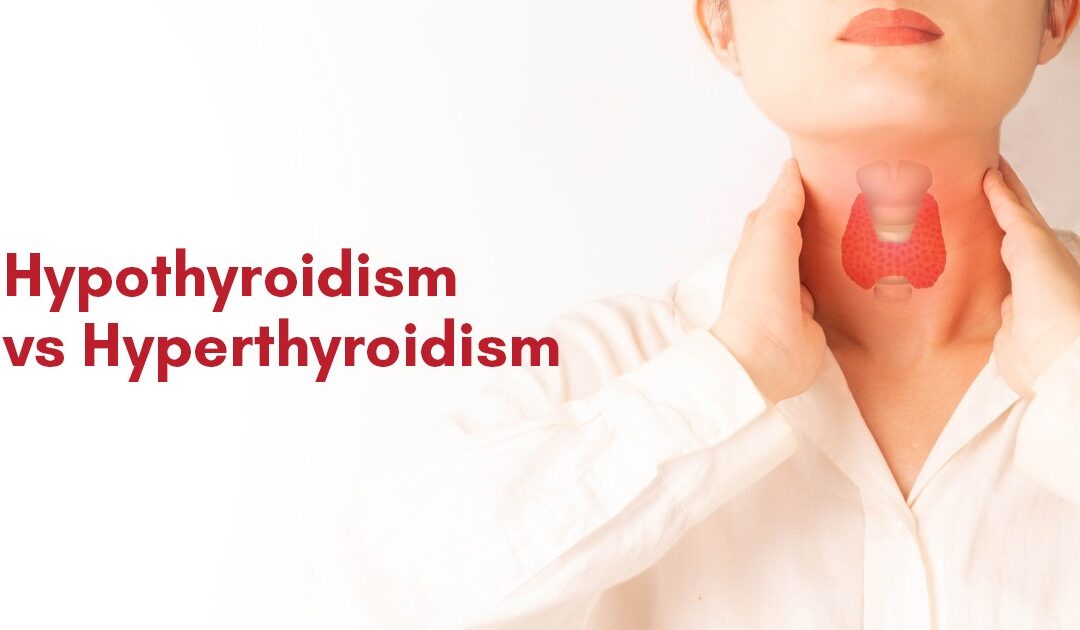Thyroid disease refers to a medical disorder that prevents your thyroid from producing the proper amount of hormones. It can impact persons of all ages. Your thyroid gland is a small, butterfly-shaped gland that lies beneath your skin at the front of the neck. It is a component of your endocrine system that produces and releases thyroid hormones such as thyroxine (T4) and triiodothyronine (T3), which regulate many of your body’s essential activities.
The primary function of the thyroid gland is to regulate the rate of your metabolism. This is how your body converts the food you consume into energy. Every cell in your body requires energy to function properly. When your thyroid fails to function properly, it can have a negative influence on the rest of your body.
Hyperthyroidism and Hypothyroidism are the most common kinds of thyroid diseases. While they may sound similar, they are vastly different. Hyperthyroidism is characterised by an overactive thyroid (the production of excessive thyroid hormone). Hypothyroidism occurs when the thyroid is underactive. Hypothyroidism outnumbers Hyperthyroidism.
What are some symptoms to look out for?
Hyperthyroidism:
- Hand tremors
- Weight loss
- Nervousness
- Rapid heart rate
- Trouble sleeping
- Brittle skin
- Muscular weakness
- Irritability
- Menstrual periods are lighter or less frequent
Hypothyroidism:
- Constipation
- Fatigue
- Cold sensitivity
- Weight increase
- Dry skin
- Forgetfulness
What are some causes to look out for?
Causes of Hyperthyroidism:
- small thyroid tumours known as toxic nodular goitres:
- Thyroiditis is a virally caused thyroid infection
- Postpartum thyroiditis
- Taking too much thyroid hormone
Causes of Hypothyroidism are:
- Previous radioiodine or surgical treatment for hyperthyroidism, thyroid cancer, or another thyroid disorder
- Previous radiation treatments for different types of head and neck cancer.
- Conditions that affect the pituitary gland in the brain Hypothyroidism present at birth, often known as congenital hypothyroidism.
- Medications such as amiodarone (Pacerone), lithium, and anti-epilepsy medications
Thyroid disorder, which includes both hyperthyroidism and hypothyroidism, can impair a variety of body systems. However, with the right diagnosis and therapy, you can manage your thyroid disorder and reclaim control of your health. Remember that maintaining your thyroid health is a continual process. Working with your doctor, you can create a specific treatment plan to recover control of your health and live a more satisfying life.

